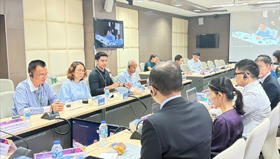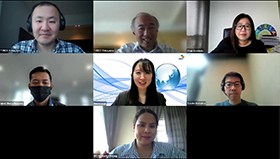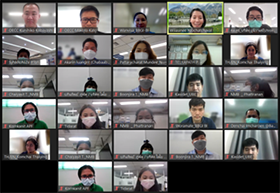“Study Session on Measurement, Reporting, and Verification (MRV) of GHG Emissions from the Waste and Wastewater based on the Waste Action Plan Under the Bangkok Master Plan on Climate Change” was successfully held.
Bangkok, Thailand/ February 2025

Study Session
On February 28, 2025, a study session on Measurement, Reporting, and Verification (MRV) of GHG Emissions from the Waste and Wastewater based on the Waste Action Plan Under the Bangkok Master Plan on Climate Change was held in Bangkok.
The Bangkok Metropolitan Administration (BMA) has set a target under the Bangkok Master Plan on Climate Change 2021-2030 to reduce GHG emissions by 19% by 2030 compared to 2018 levels. This workshop was organized for BMA officials with the aim of developing and improving practical and sustainable action plans for the waste and wastewater sectors, which can be integrated into management strategies and policies.
At the workshop, Associate Professor Wilasinee from Kasetsart University, who has been supporting the development of the action plan as a local consultant, presented a report on the draft action plan, which had been under discussion for about a year. In addition, Mr. Kato, Member, Board Director of OECC, gave a presentation on the technical aspects of calculating GHG emissions from waste management and wastewater treatment. He also shared information on strategies for reducing GHG emissions in these sectors and discussed the collection of sewage usage fees as a model for securing the necessary funding, using examples from Japan.






